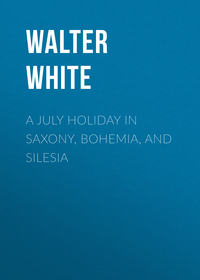Sadece Litres'te okuyun
Kitap dosya olarak indirilemez ancak uygulamamız üzerinden veya online olarak web sitemizden okunabilir.
Kitabı oku: «A July Holiday in Saxony, Bohemia, and Silesia», sayfa 11
Bir şeyler ters gitti, lütfen daha sonra tekrar deneyin
Türler ve etiketler
Yaş sınırı:
12+Litres'teki yayın tarihi:
30 haziran 2018Hacim:
295 s. 10 illüstrasyonTelif hakkı:
Public Domain